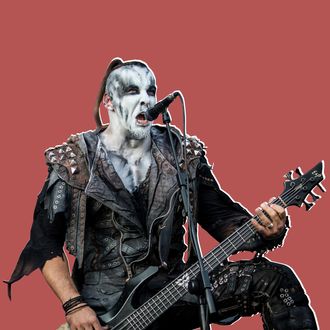
Few musical genres have such particular signifiers as metal: the donning of white and black makeup and calling it corpse paint, the burning of churches, the blackness of the Black Metal Cats. It’s a ghoulish subculture of its own, twisting the English language for its own nefarious purposes. And some words are more metal than others.
In one of the heaviest applications yet of the digital humanities, a data-science blogger going by Degenerate State pulled lyrics from darklyrics.com — the lyrics site 12-year-old me would pause Warcraft for to see what the hell those guys were singing about — for a database of 22,623 songs from 7,364 bands. While it’s not an exhaustive data set of all metal ever made, it’s pretty good. The darklyrics.com data was then compared with the Brown Corpus, a collection of documents published in 1961 that’s meant to represent everyday English (but does not, importantly, include lyrics). By comparing the frequency of words’ usage from darklyrics.com with the Brown Corpus, you get the “metalness” of individual words, at least by the blogger’s measure.
The most metal word of all is burn, followed by cries, veins, eternity, and breathe. The least metal word is particularly, followed by indicated, secretary, committee, and university. What you can infer from this is that the metal English is spoken from a timeless, elemental, and darkly ethereal space, while standard English is unremarkably deskbound. Perhaps this is why we hunger for metal in the first place.




